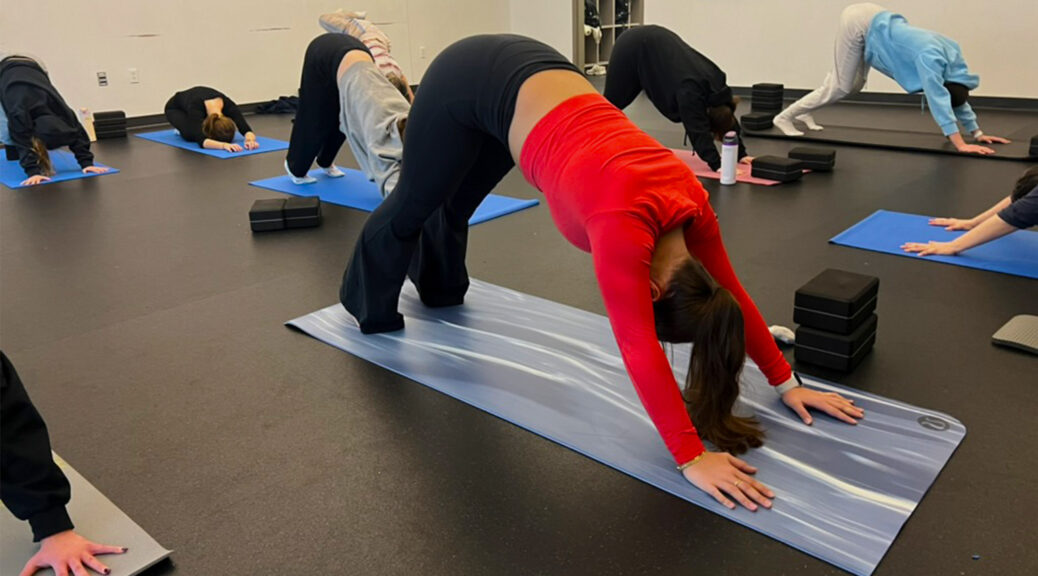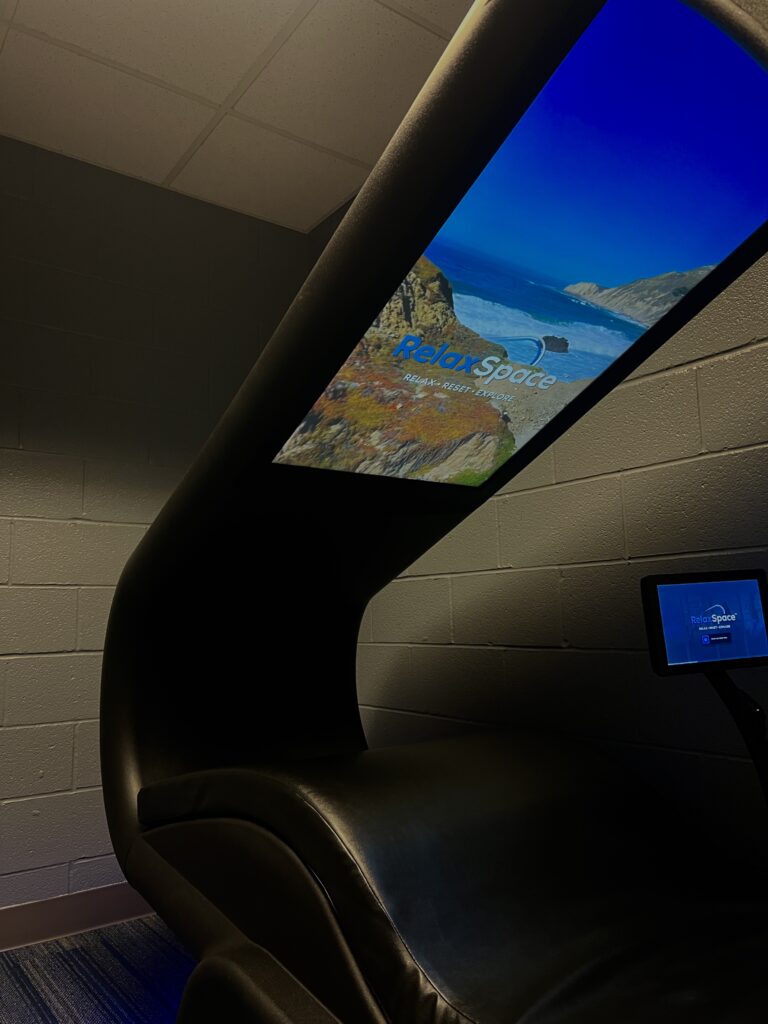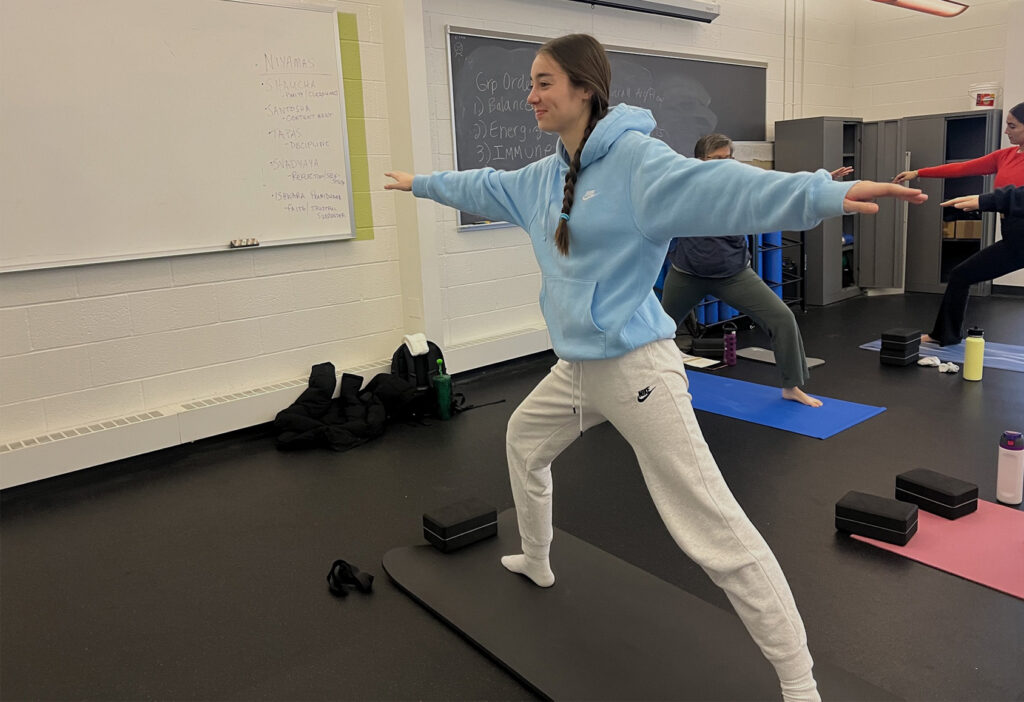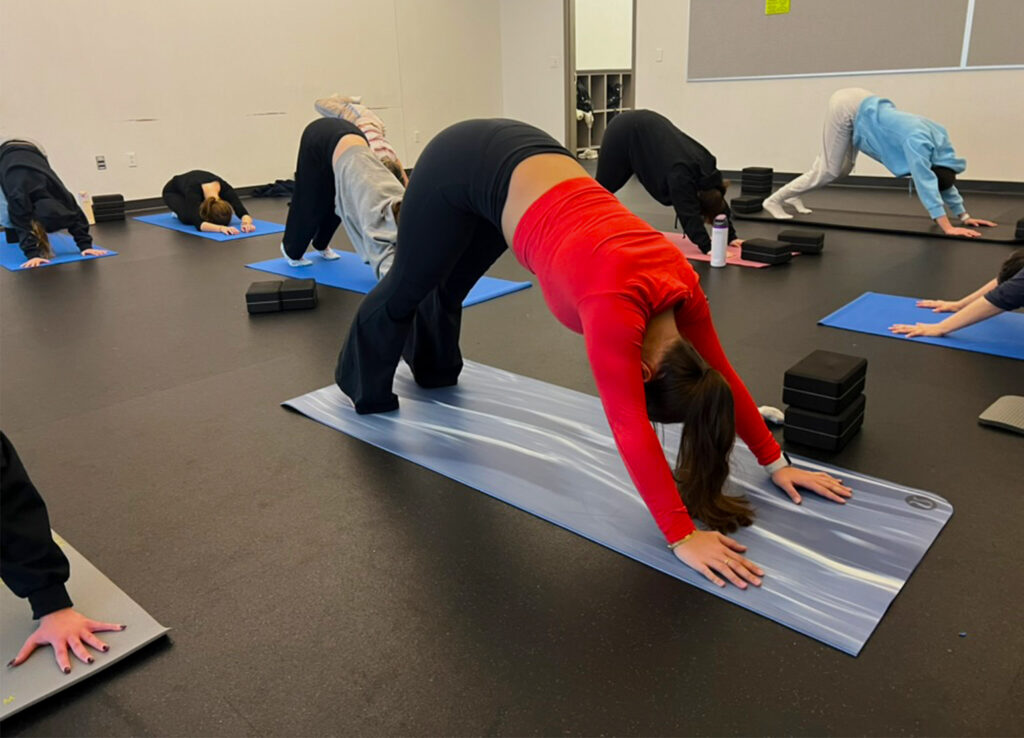
Self-Care and Stress in College Students
Stress. This is something that most, if not everyone has either heard of or experienced. The Cleveland Clinic defines stress as, “the natural reaction your body has when changes or challenges occur.” One group that has been proven to experience stress highly, though, is college students. Tests, quizzes, extracurricular activities and classes are all something that may seem easy, however, this is quite the opposite. According to a 2024 article by Research.com, 45% of college students in the United States claim that they have “more than average stress,” with 33% saying that they experience “average stress.”
Stress can come in many different forms. In a 2024 article by The Cleveland Clinic, they define three different types of stress: acute, episodic acute and chronic. Acute stress is a more short-term kind of stress that goes away quickly. Some examples of acute stress can be an argument with a parent or going on a scary ride for the first time. Episodic acute stress is the same thing as acute stress, but it occurs on a daily basis rather than one time. High-demanding jobs typically have a lot of episodic acute stress that go with them, such as being a nurse practitioner or medical assistant. Finally, chronic stress describes the stress that is more long-term and can last for weeks or even months. A simple example of chronic stress can be relationship troubles. It is most likely going to last a couple weeks or even months to fully come to peace with a breakup.
There are resources to help battle stress and its problems that may come about. These resources can be found online, at work or even on college campuses, such as Kent State University. It can sometimes be difficult to navigate these services, though. One great tool to access on Kent State’s campus is the Wellness Hub located in the Student Recreation and Wellness Center. Here, are Peer Educators like Brynn Kler. The role of Peer Educators is to combine their training in Health Education and to use that to have a positive effect on the Kent State community.
Brynn talks about how the Student Recreation and Wellness Center provides resources to help with student’s stress such as pilates, yoga and spin classes. The Adventure Center located in the Rec has a climbing wall people may utilize, and there are also hiking, biking and kayaking trips available.
“We also have a lap pool, a weights floor with free weights and machines and an indoor track,” she said. “So there’s a lot of different ways for students to get active in the Rec Center and move your body depending on how you like to.”

Another resource offered at the Rec is the RelaxSpace Wellness Pod. This is a space designed to reduce stress, encourage relaxation, increase muscle recovery and much more.
“The purpose of the Relax Pod is to stimulate four of your five senses,” Brynn said. “You sit in this pod in a dark room and it can have scents coming out of it, it will have a screen in front of you that you can set on different scapes, there will be calming sounds and then it can have heat or air conditioning pumped into you.”
Not only are there resources available on campus, but there are some outside of campus as well. One of these being Townhall II. Tamera Hunter, Chief Executive Officer of Townhall II Integrated Health Network, goes more into detail about what this organization is all about.
“In a nutshell, our purpose is to help those in need,” she said.
The primary areas of treatment at Townhall II are mental health and addiction, with the age range of focus being from children to adults. Prevention school based programming is another department offered. The best way to access Townhall II is through their Helpline, which is 330-678-4357. The phone call goes directly to their phone room, where someone is there to pick up the call 24/7.
Tamera said that she does not currently see a lot of college students coming into the facility, but she would love to. She believes that everyone right now is stressed. She said that there seems to be the most stress from the student population, though.
According to a 2024 article from Transforming Education, 94% of American college students feel overwhelmed by their studies, which suggests that academic pressure is a big factor in student stress. However, there are classes offered on college campuses that can help to relieve some of this stress. One of these classes is Beginning Yoga at Kent State taught by Alicia Patrice.
A 2024 article from Harvard Medical School states that while all physical exercise is beneficial in reducing stress, yoga has more significant benefits, such as reduced anxiety and depression.
Eva Resek, a 19-year-old sophomore nursing major, and Helena Jardine, a 22-year-old senior nursing major, have both found benefits while taking a yoga class in college.
Eva said that the reason for her taking a yoga class this semester was to add some fun courses into her schedule since the nursing classes are pretty structured.
“I think it’s really made me focus on mindfulness and just having intention with all of my actions,” she said.
Helena said that she had taken one of Alicia’s classes before and really enjoyed it, so she wanted to take another. She said that she finds it nice to get some movement in, especially on early mornings.
“After my yoga class I feel less stressed and ready to start my day,” she said. “I also workout and go to the gym a lot, so it’s nice to move my body in a way that is not demanding.”
While college students do experience high stress, it is also important that these students are getting the help that they need to deal with the stress.
“I would say we outreach a different number of students depending on the semester and the event or program that we are hosting,” Brynn said. “This semester I would say we have outreached probably at least 500 students.”




